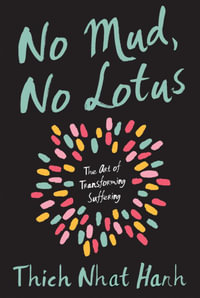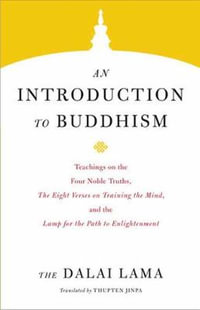It is widely known that Buddhists deny the existence of the self. However, Buddhist philosophers defend interesting positions on a variety of other issues in fundamental ontology. In particular, they have important things to say about ontological reduction and the nature of the causal relation. Amidst the prolonged debate over global anti-realism, Buddhist philosophers devised an innovative approach to the radical nominalist denial of all universals and real resemblances. While some defend presentism, others propound eternalism. In How Things Are, Mark Siderits presents the arguments that Buddhist philosophers developed on these and other issues. Those with an interest in metaphysics may find new and interesting insights into what the Buddhists had to say about their ideas.
This work is designed to introduce some of the more important fruits of Buddhist metaphysical inquiry to philosophers with little or no prior knowledge of that tradition. While there is plenty of scholarship on the Indian Buddhist philosophical tradition, it is primarily concerned with the historical details, often presupposes background knowledge of the major schools and figures, and makes ample use of untranslated Sanskrit technical terms. What has been missing from this area of philosophical inquiry, are studies that make the Buddhist tradition accessible to philosophers who are interested in solving metaphysical problems. This work fills that gap by focusing not on history and texts but on the metaphysical puzzles themselves, and on ways of trying to solve them.
Industry Reviews
"This book provides a multidimensional interpretation of the metaphysical teachings put forth by different schools of Indian Buddhism. It will not only be greatly appreciated by scholars of Indian Buddhist studies,but it also makes an important contribution to the study of metaphysical theories in general." -- Yufei Han, Central China Normal University, Religious Studies Review
"How Things Are is a tour de force of Buddhist metaphysics from an analytic philosopher so steeped in both traditions so as to be able to present Buddhist metaphysics' dialectical progressions and interrelationships in Western analytic terms at both the fine-grained level of analysis and the "big picture" level on the many ways these arguments stack up against each other and contemporary Western philosophical puzzles." -- Rick Repetti, City University
of New York, Philosophy East and West
"This book provides a multidimensional interpretation of the metaphysical teachings put forth by different schools of Indian Buddhism. It will not only be greatly appreciated by scholars of Indian Buddhist studies, but it also makes an important contribution to the study of metaphysical theories in general." -- Religious Studies Review
























